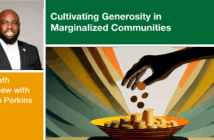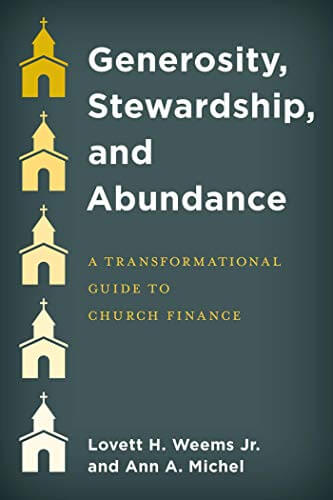Sometimes churches have financial systems designed for the convenience of those receiving the contributions rather than for those who are giving.
When you design and communicate financial policies, make sure they are done from the perspective of the giver and not for the convenience of those handling the funds.
For example, consider this notice that appeared in an actual church newsletter. (I want you to know up front that it is true, because otherwise you will think I made it up!)
Our final deposit for 2005 will be made on Thursday, December 29, 2005. All 2005 donations must be received by mail or delivered to the office prior to December 29. If received after that time, it will be posted as a 2006 receipt and will not show on your 2005 giving record. This will not preclude you from deducting it as a charitable contribution in 2005. You will just not have a receipt for the donation. If you wish to contribute early toward your 2006 pledge, please mark your donation clearly as 2006. Any donation for your 2006 pledge received prior to January 1, 2006, will be deposited and posted to 2005 and will appear on your 2005 giving record for tax purposes.
This notice was written by either a very uptight financial secretary or an exceptionally legalistic finance committee. While it may offer correct information, it is a classic example of “inside-out” thinking that frames the issue from the perspective of the church’s procedures rather than from the viewpoint of the donor. One could get the sense that the church is doing people a large favor by receiving their money. What a peculiar perspective!
When you design and communicate financial policies, make sure they are done from the perspective of the giver and not simply to satisfy rules. Make sure that readers know your interest is primarily in them and their desire to fulfill their giving goals, not for the convenience of those handling the funds. This, for example, may be a more “giver-friendly” way of communicating with people about year-end giving.
The end of the year is coming. Some of you have said you will be out of town in the last days of the year. Others of you have said you won’t know about your total giving ability until you know the size of your bonus or other financial results. Church members face these year-end issues every year, and our church is happy to work with you to achieve your giving goals. Here are options and timelines available to you. You may always contact (name, phone, email) to arrange your giving at this busy time of the year.
- Give at one of these remaining worship services ….
- Mail your check to (address) postmarked by (date).
- Contribute online at (link).
- Use your bank’s bill pay system by (date).
- If giving stock or funds managed by a broker, ask for a transfer to be completed by (date).
- Bring your gift to the church office (hours) by (last day and time).
Thank you for making a difference in countless lives in this community and around the world.
Putting the focus on what people can do instead of what they cannot do helps them think positively about possibilities for giving. It also helps remind everyone that the church exists to work with them and thus make possible their ministry.
Related Resources:







